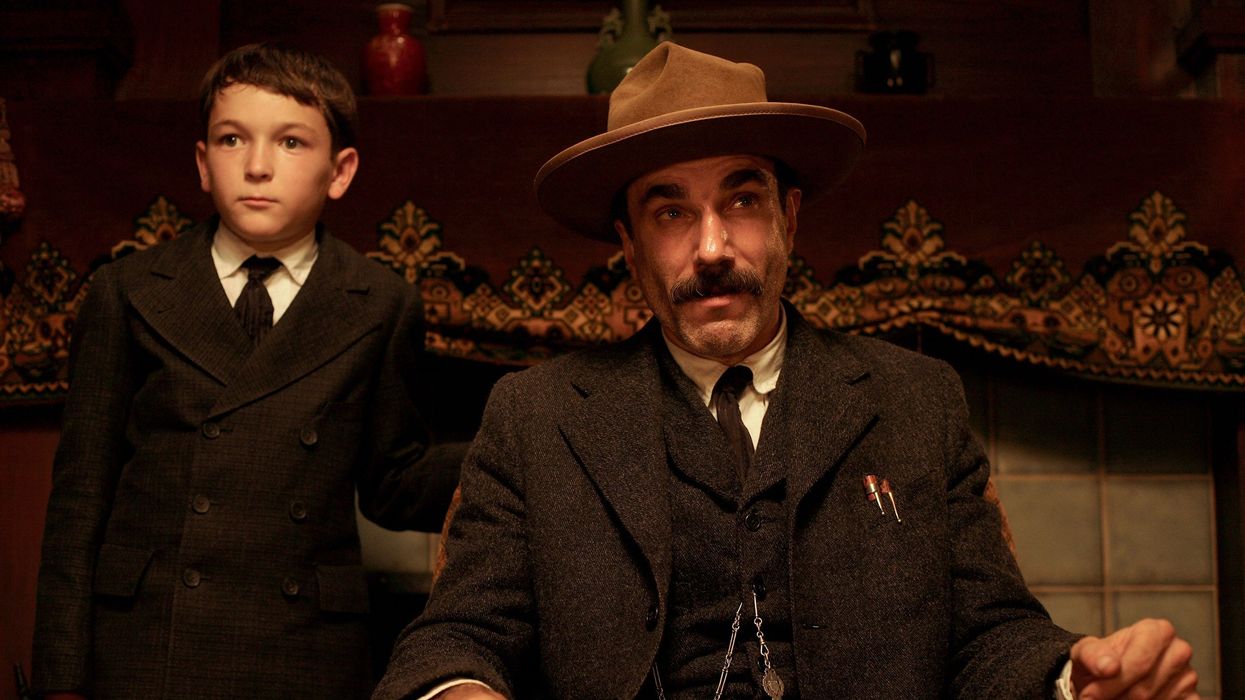Is Daniel Plainview the Villain of 'There Will Be Blood'?
Can your main character also be the villain of the story?

Antagonists are tricky. They have to fight the hero at every turn and have their own motivations. But what happens if your antagonist is your protagonist?
Actually, is that even a thing? Today, I want to figure that out, using the movie There Will Be Blood.
Paul Thomas Anderson's There Will Be Blood will go down in history as one of the best movies ever made. It's the study of a man who antagonizes the world in search of oil.
The terrifying portrayal of Daniel Plainview by Daniel Day-Lewis is one of the greatest performances in history as well. Daniel Plainview is the backbone of There Will Be Blood, and his intensity can be felt by every person that sees the film. But could he actually be the antagonist and not the protagonist?
Check out this video from Nerdstalgic, and let's talk after.
Is Daniel Plainview Actually the Villain of There Will Be Blood?
Up top, I won't waste your time. I don't think Daniel Plainview is the antagonist of the story. I think there are some semantic reasons why.
If anything, Daniel is an anti-hero with a very clear goal—to get the oil in the area. Standing against him are many people, like the other oil companies, the local preacher, and even his own ego. It's a classic man versus man, man versus himself conflict scenario. But I think Daniel Plainview is actually one of the most important characters ever created because he has the clearest motivation of anyone I have ever seen. He is driven to get oil. It seeps through him. It's more important than the rest of his life.
I will say this, Daniel Plainview is the villain in one way—if the adage of "the villain in your story is the hero of their own" is true, then Plainview is the villain to almost every other character in the story, if you look through their eyes. He's certainly antagonizing his son, Paul Dano's character, and almost everyone else who stands in his way. The movie told through their eyes makes him the villain.

But since Paul Thomas Anderson decided to tell this story through Plainview, even starting with him alone, gold prospecting, I don't think we can see him as the villain, except if we boiled it down to a man-versus-self story, where he's constantly trying to overcome his greed, which holds him back.
I think that can be an interesting reading of the film, especially if you think his "bastard in a basket" scene is actually him sending his son off to a more loving life without him in it, knowing that he's near his end. But it is hard to buy that the entire movie is focused on that. Greed is certainly a theme, but Plainview has to overcome lots of things. His own personal struggles are part of many other adversaries. So I am not sure we can wholly classify something that way.
I'd love to know your thoughts on the subject—let me know your point of view in the comments.
Source: Nerdstalgic
- Writing Takeaways From the 'There Will Be Blood' Script PDF ›
- This Dialect Expert Breaks Down the Art of the Movie Accent ›
- Watch: The Notorious Evolution of Daniel Plainview's Character in 'There Will Be Blood' ›
- How to Write An Antagonist ›
- What is an Antihero? | No Film School ›











